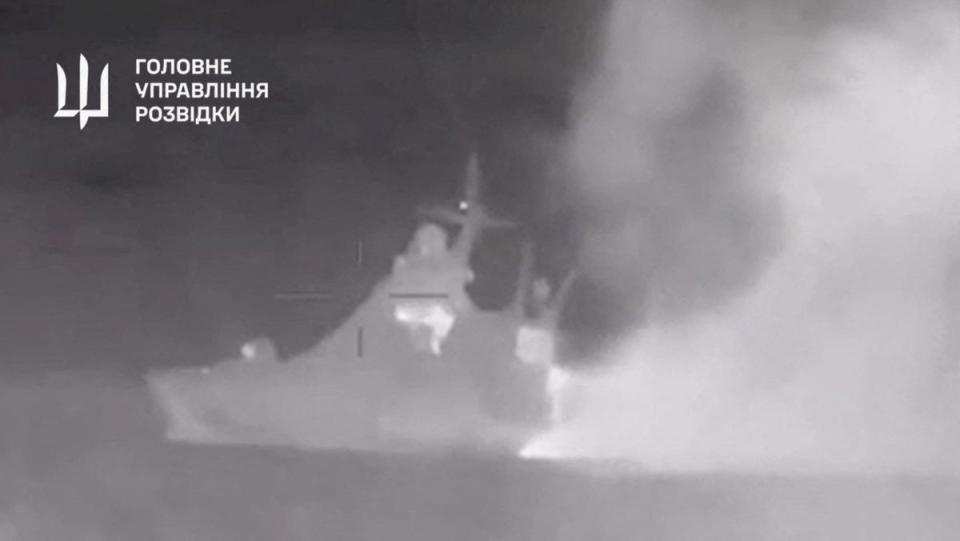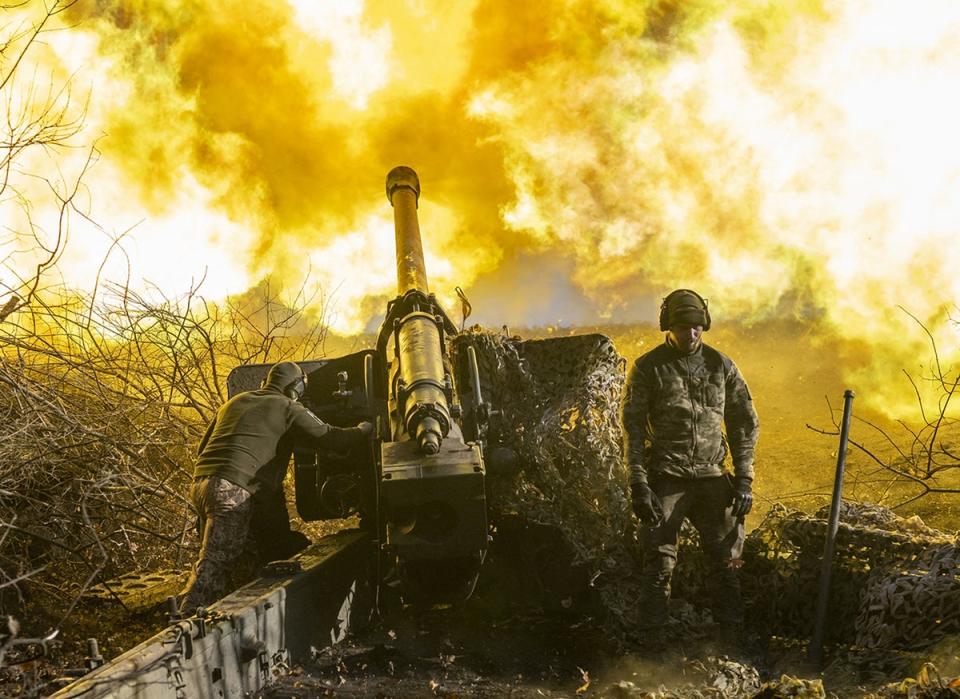Russia confirms new navy chief after Black Sea warship losses

Vladimir Putin has appointed a new commander of the Russian navy as he looks to fight back against Ukraine’s sweeping attacks on his prized naval fleet in occupied Crimea.
Admiral Aleksandr Moiseev, who commanded the Crimean Black Sea fleet (BSF) for a year back in 2018, was appointed to what some analysts say is Russia’s most difficult military role during a ceremony in Putin’s hometown of St Petersburg.
While Putin’s troops have enjoyed success recently on the ground in Ukraine, long-range attacks on Russia’s BSF have destroyed roughly a quarter of its ships and forced dozens more to relocate to the mainland after decades of being stationed in Crimea.
A Ukrainian attack late last year even destroyed the BSF headquarters on the peninsula, using British-supplied long-range Storm Shadow missiles.
The latest attack, at the start of this month, saw Ukraine use remote-controlled boats packed with explosives to destroy the Sergey Kotov patrol ship. It was the 21st naval ship or submarine to be hit since the start of the war in February 2022, according to war tracker Oryx.
It is widely believed that Moiseev’s predecessor, Nikolai Yevmenov, was sacked earlier this month because of his inability to counter these Ukrainian attacks.
“Moiseev has his work cut out for him and it won’t be easy,” Thord Ave Iversen, a military analyst specialising in the Russian navy, said. “He will face a sluggish system, where leadership and initiative seem to have gone absent early in the war, on most levels.”
He added, however, that Moiseev appears to be the “best candidate Russia had”, noting that the admiral spent years climbing the ranks as a submariner.

“Russian submarine commanding officers are considered by many to be a match for their Western counterparts and, at a minimum, are someone you don’t underestimate,” said Mr Iversen, who previously served as an officer in the Royal Norwegian Navy.
In mainland Russia, meanwhile, local officials announced plans to protect oil refineries, which have been targeted heavily by Ukrainian drones in recent months, and to evacuate regions alongside Ukraine, following a spate of cross-border raids.
A Russian energy ministry official told a parliament meeting on Tuesday that there are plans to defend oil and gas facilities with missile systems. Recent attacks have caused fires in refineries southeast of Moscow, and hundreds of miles from Ukraine, that saw significant spread and took hours to put out.
In Belgorod, which borders Ukraine, local governor Vyacheslev Gladkov said that roughly 9,000 children were to be evacuated eastward after a slew of recent raids from Russian soldiers fighting alongside Kyiv’s forces.

Western officials, meanwhile, have announced plans to boost military support for Ukraine in an effort to reverse artillery shortages on the front line.
After the European Union announced a €5bn (£4.3bn) weapons package for Kyiv on Monday, Germany reported it would send an additional €500m on Tuesday, including at least 10,000 artillery shells to be delivered immediately.
It also committed to providing an additional 100,000 155mm shells, which it will begin delivering later this year.
It comes as Yulia Navalnaya, the widow of Russian opposition leader Alexei Navalny, urged Western leaders to refuse to recognise Putin as a legitimate leader after he claimed 87 per cent of the vote in a rigged presidential election over the weekend.
The 47-year-old, having avoided the limelight while her husband was alive, has emerged as an unlikely new face of the opposition following what she claims was the Kremlin’s murder of Mr Navalny.
“We have proved to ourselves and others that Putin is not our president,” Ms Navalnaya said in the clip posted to her late husband’s YouTube channel.
“The election results do not matter ... We will ensure that no one in the world recognises Putin as the legitimate president. That no one sits down with him at the negotiating table.”

 Yahoo News
Yahoo News 
